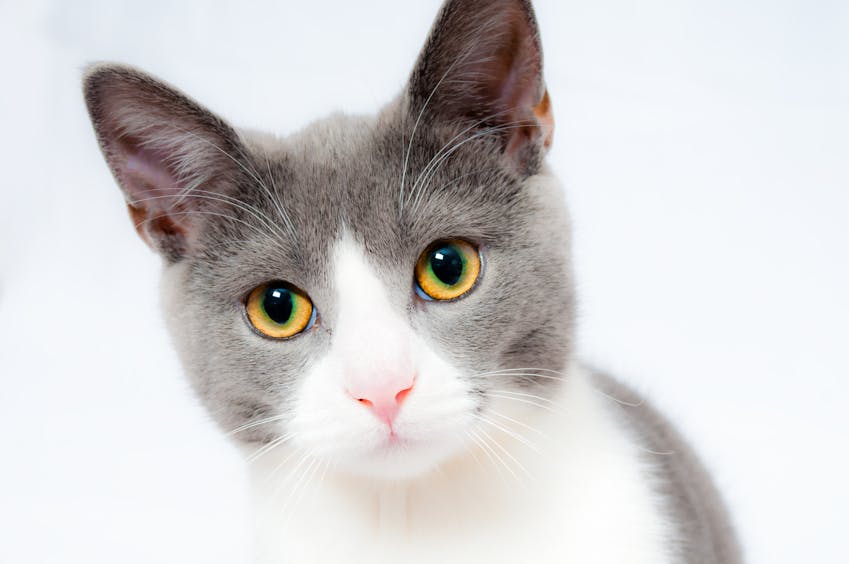It’s hard to resist a sweet treat like a Greggs Custard Slice, but if you’re a cat owner, you may wonder if your feline friend can safely share this indulgence. While it might seem harmless to give your cat a small bite of your pastry, the truth is that certain ingredients in custard slices and similar desserts can pose serious risks to their health. Let’s dive into the dangers of cream pastries for cats and what you need to know as a responsible pet parent.
🍰 What’s in a Greggs Custard Slice?
Greggs Custard Slices are a popular dessert made with layers of puff pastry, rich custard, and sugary icing. While delicious for humans, the ingredients in these treats are not suitable for cats. Here’s why:
- Dairy ingredients: Custard contains milk, cream, and butter, which most cats cannot digest properly due to lactose intolerance.
- Sugar: The high sugar content in both the custard and icing can lead to obesity, diabetes, and dental issues in cats.
- Fats: Pastries are loaded with unhealthy fats that can upset your cat’s stomach and lead to long-term health problems.
- Artificial additives: Many processed desserts contain preservatives, flavorings, and colorings that can be toxic to cats.
Even a small piece of custard slice can introduce these harmful ingredients into your cat’s system, so it’s best to avoid sharing this dessert altogether.
🐾 Why Are Dairy Products Dangerous for Cats?
Although the image of a cat drinking milk is iconic, most adult cats are actually lactose intolerant. This means their bodies lack the enzyme needed to break down lactose, a sugar found in milk and other dairy products. When cats consume dairy, it can lead to digestive issues such as:
- Diarrhea
- Vomiting
- Abdominal discomfort
- Bloating
The custard in Greggs Custard Slices is rich in milk and cream, making it particularly problematic for cats. Even if your cat doesn’t show immediate symptoms, consuming dairy can still harm their digestive system over time.
🍬 The Hidden Dangers of Sugar and Fats
Cats have no biological need for sugar, and their taste buds aren’t even designed to detect sweetness. Despite this, sugary foods can still appeal to cats due to their texture and smell. However, consuming sugar can lead to several health issues, including:
- Weight gain and obesity
- Diabetes
- Tooth decay
In addition to sugar, the fats found in puff pastry and cream can strain your cat’s pancreas and liver. Over time, a high-fat diet increases the risk of pancreatitis, a painful and potentially life-threatening condition.
🚨 Symptoms to Watch For If Your Cat Eats Custard Slice
If your cat manages to sneak a bite of custard slice, monitor them closely for any signs of distress. Symptoms of an upset stomach or more serious complications may include:
- Vomiting
- Diarrhea
- Lethargy
- Loss of appetite
- Abdominal pain or discomfort
In severe cases, consuming fatty or sugary foods can trigger pancreatitis. Symptoms of pancreatitis in cats include:
- Fever
- Dehydration
- Hunched posture due to abdominal pain
- Rapid breathing
If you notice any of these signs, contact your veterinarian immediately for advice and treatment.
🐱 Are There Safe Treat Alternatives for Cats?
While custard slices and other human desserts are off-limits, there are plenty of safe and healthy treats you can offer your cat instead. Consider these options:
- Cooked chicken or turkey (plain, no seasoning)
- Small pieces of cooked fish like salmon or tuna (boneless and unsalted)
- Commercial cat treats formulated for feline nutrition
- Catnip or cat grass for a natural treat
Always introduce new foods in moderation and consult your veterinarian if you’re unsure about a particular treat.
🩺 When to Call a Vet
If your cat has eaten a significant amount of custard slice or is showing symptoms of illness, it’s important to act quickly. Call your veterinarian or an emergency pet clinic for guidance. They may recommend bringing your cat in for an examination, especially if symptoms persist or worsen.
In some cases, your vet may need to perform tests to assess your cat’s overall health and identify any underlying issues caused by consuming the dessert. Early intervention can make a significant difference in your cat’s recovery.
FAQs
Can cats eat custard without the pastry?
No, custard is not safe for cats because it contains milk, cream, sugar, and sometimes artificial additives that can harm their digestive system.
What happens if my cat licks a little icing?
A small lick of icing is unlikely to cause serious harm, but it’s still not recommended due to the sugar and artificial ingredients. Monitor your cat for any signs of an upset stomach.
Are there any desserts that cats can eat?
Cats don’t require desserts or sweets in their diet. Instead, stick to healthy, cat-friendly treats like plain cooked meat or commercial cat snacks.
How can I prevent my cat from eating human food?
Keep desserts and other harmful foods out of reach by storing them in sealed containers or high cabinets. Train your cat to stay off counters and tables, and never leave food unattended.
References
Book a $49 online vet consultation at https://www.dialavet.com for fast, expert advice.























